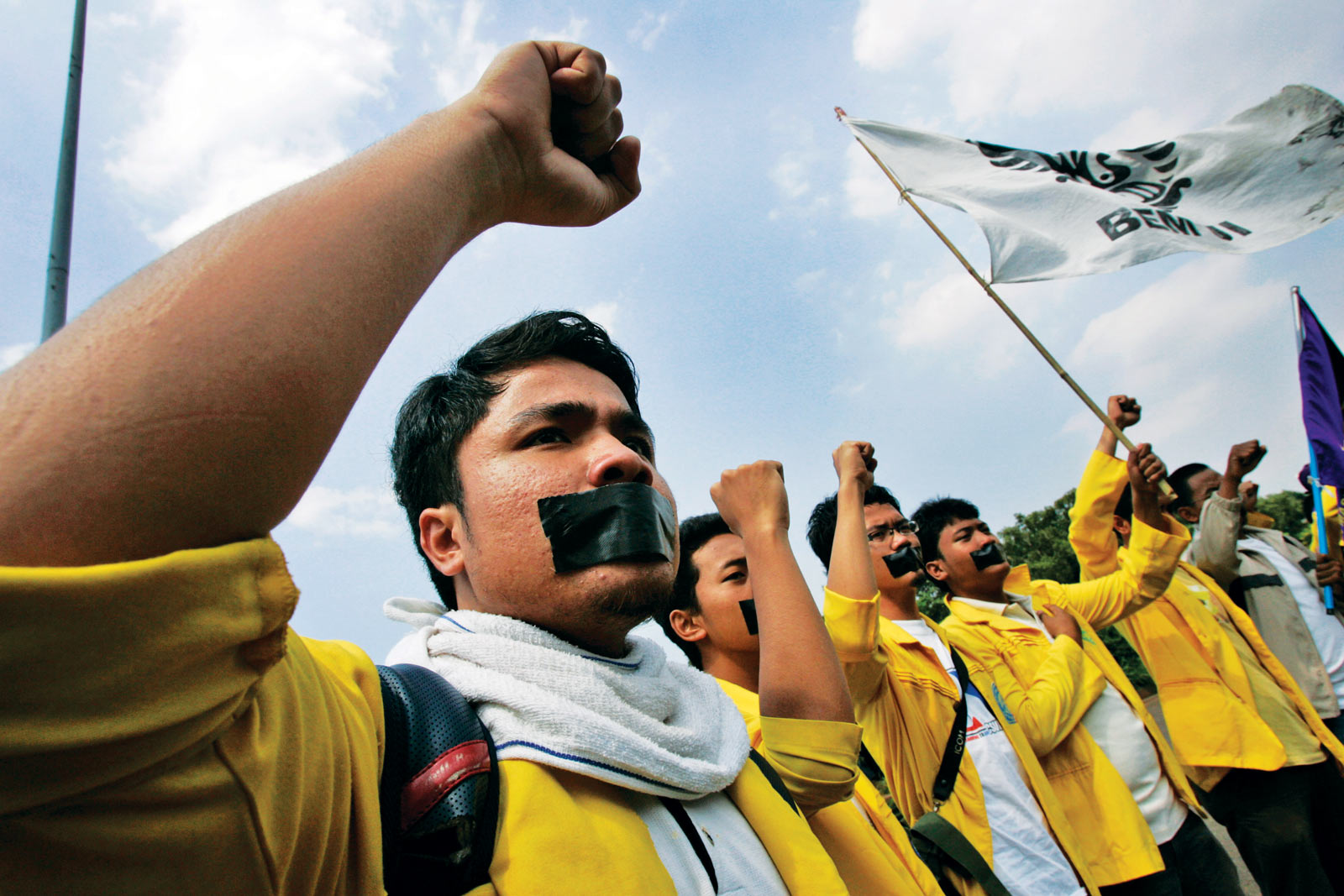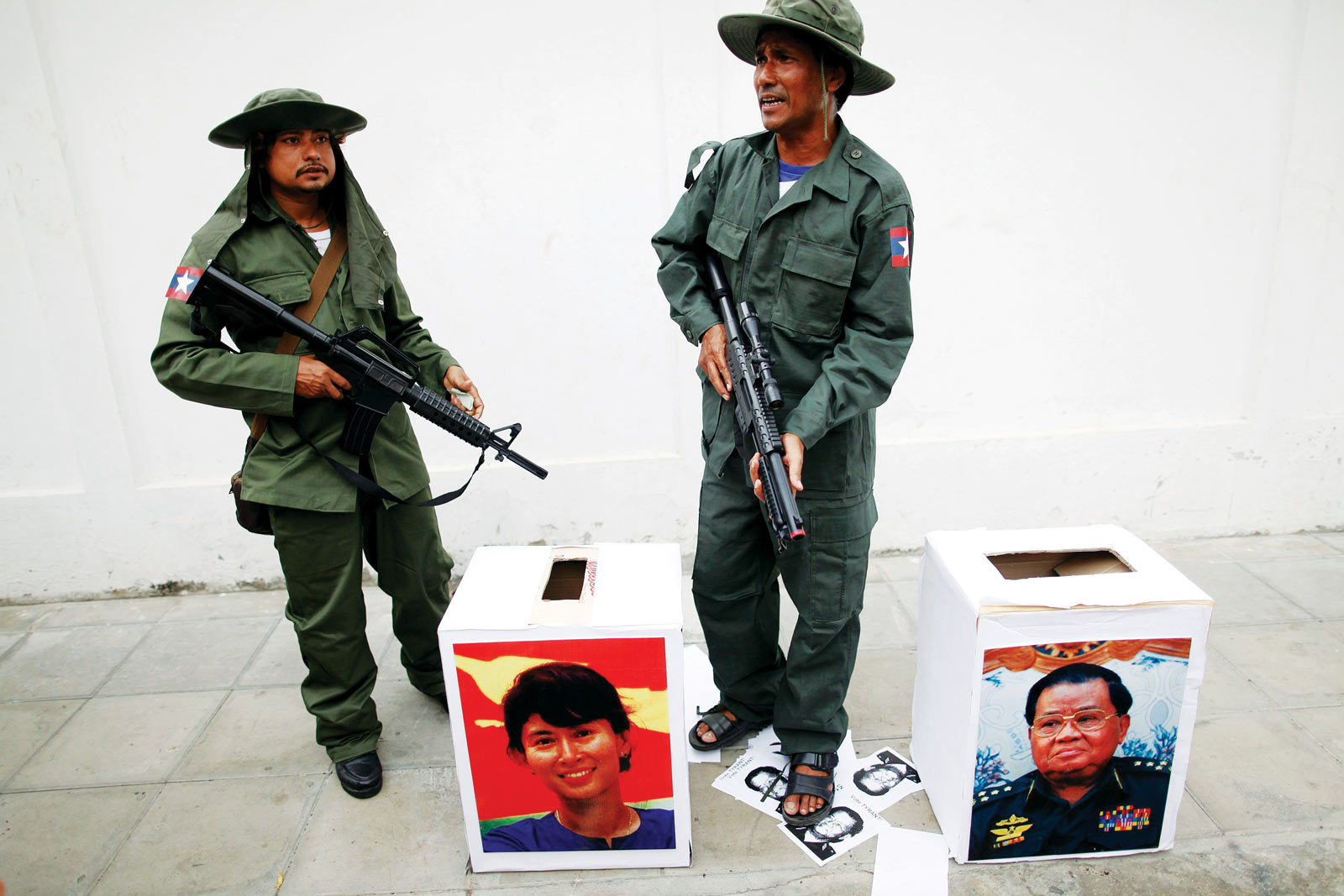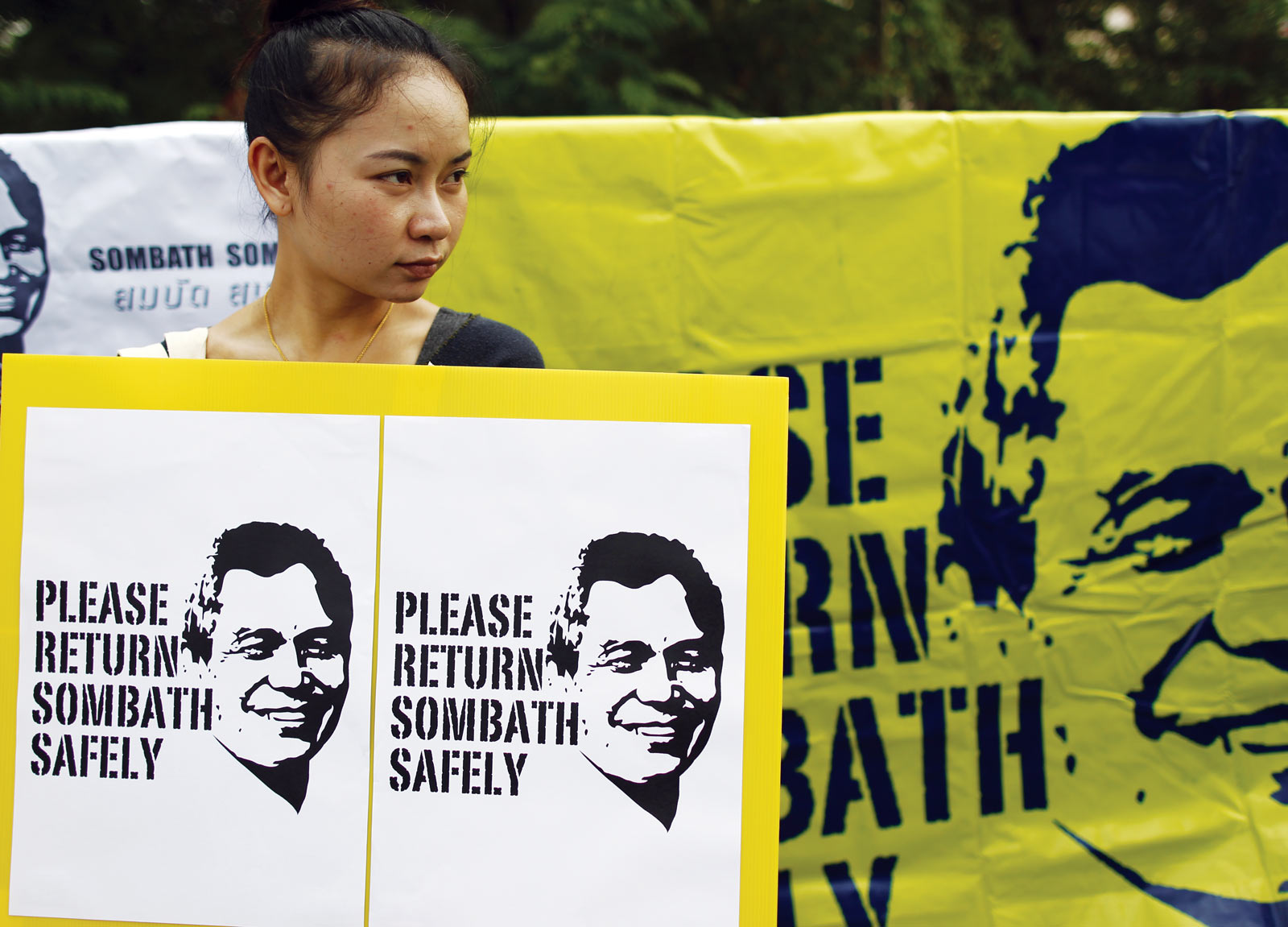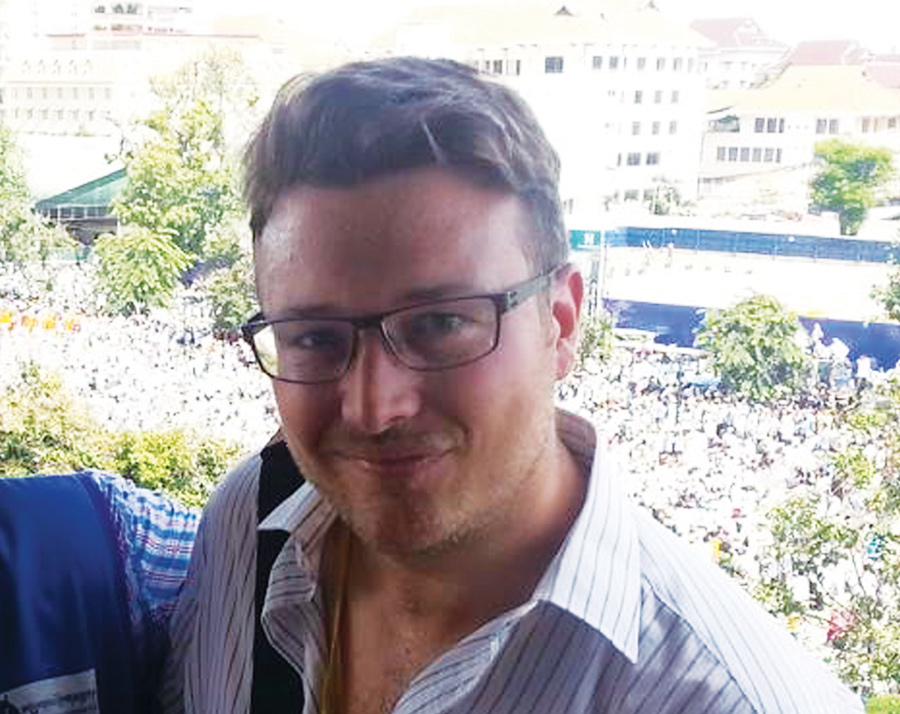ASEAN Human Rights
An uncomfortable question
Human rights organisations are fighting the good fight on behalf of the region’s citizens. But as abuses continue, so does the debate over their methods and results
David Hutt
March 23, 2015
G

Finding a voice: a protester takes part in the Bersih (Clean) rally near Independence Square in Kuala Lumpur in 2012. Photo: Bazuki Muhammad/Reuters
Long before pen was put to paper on the Universal Declaration of Human Rights, debates had waged over the principle of the concept. As the French triumphantly proclaimed a republic in 1789 and signed the Declaration of the Rights of Man, slaves in the colonies raised their hands, asking what rights they could expect. When the Bill of Rights was signed in the US, the slaughtering of Native Americans poured scorn on its assertion that all men are created equal.
The modern debate on human rights has shifted. Some claim it is an inherently flawed concept, incapable of bringing about actual change; for others the concept is fine – it is government deficiencies that denigrate the movement.
During the past decade, the modern human rights movement – a push to establish universal principles for the treatment of people – has become entrenched in Southeast Asia. All countries except Myanmar have agreed to the relevant UN conventions, and every nation – excluding Laos – can boast two or more local human rights organisations. However, the past two years have seen Thailand revert to military rule; Malaysia, Vietnam and Cambodia have been heavily criticised for their actions against freedom of speech, assembly and protest; while Myanmar, the one-time poster child of change in the region, is said to be backsliding.
These could be individual setbacks, or they could be indictments of an ineffective human rights movement.
Eric Posner, professor of law at the University of Chicago Law School, is one of the world’s most vocal critics of the human rights movement. He vehemently believes that it has failed to achieve its objectives and is in need of re-evaluation.

Flag waving: experts agree that the West and the UN does not put enough pressure on countries over human rights
“Human rights are a bit like the civilising missions of the imperial countries during the 19th Century,” he said. “You cannot just take norms, institutions and traditions that exist in one set of countries, impose them on others and expect them to operate exactly as they did in the original countries.”
One of the problems for regions such as Southeast Asia, he added, is that the human rights movement often follows a Western agenda at odds with local politics, customs and cultures.
For Phil Robertson, deputy Asia director for Human Rights Watch (HRW), such a claim is outrageous. “People who talk about universal human rights being incompatible with Asian values or culture don’t know what the hell they are talking about. The argument is an elitist, racist one that argues that Asians deserve fewer rights than people from other parts of the world,” he said, going on to describe Posner as a “human rights denier” and “an academic with a cushy US university job”.
The ‘Asian values’ argument was regularly parroted in the 1980s and 1990s by several – usually autocratic – Southeast Asian leaders, often in response to human rights abuses. However, it is the hand of Western influence that causes Posner discomfort.
I can only speculate, but I assume that [human rights organisations] pick and choose what to focus on [according to] what outrages people in the West.Eric Posner
Ou Virak, who until late last year was president of the Cambodian Centre for Human Rights (CCHR), admitted that both international and national human rights organisations can be subject to outside influences and that some of the region’s most pressing human rights issues do not necessarily attract donors.
“If you look at funding, HRW is funded by foundations and individuals. So they are bound to be limited by that. And local [human rights] organisations are often funded by Western governments,” Virak said.
When asked if this meant local human rights organisations have to follow the agenda of Western governments, he joked: “Who doesn’t have to follow a Western agenda?”
During his time with the CCHR, he continued, measures were put in place to ensure that the organisation’s agenda was set first, and then donors were found for these projects. “Although, there’s no organisation in Cambodia or the region that can claim to be completely independent of the influence of money,” he said.
Robertson added that HRW “would accept no conditions of any sort on funding it receives from private foundations” and that local human rights defenders and organisations “play a big role in helping us decide what to focus on”.

The ballot and the gun: pro-democracy activists dressed as soldiers stand near mock voting boxes during a protest in front of the Myanmar embassy in Bangkok
Money also plays a significant role on the other side of the divide. While human rights organisations struggle to secure funding, governments also have to balance the books. Posner notes that governing lower-income countries is not easy.
“I think the human rights community doesn’t understand that rights are expensive – even basic ones,” he said. “For example, if you don’t want torture to happen, you have to train your police and pay them well, but that’s expensive.”
While human rights might be universal, Posner said, the ability and means to implement them are not.
As such, aid and loans are distributed to poorer countries, but with money comes conditions. When the US hands over millions of dollars to Cambodia or Myanmar on the proviso of bettering human rights they are expected to do so. Often, however, there is too much carrot and not enough stick.
“The West has never really put pressure on its allies to improve their human rights situation. It might make some comments but nothing substantial,” Posner said.
In a rare moment of accord, Robertson stated that there is too much leniency in the UN system of enforcement.
“Governments often fail to submit reports, or promise to do something [at UN meetings] and then forget about that pledge when their ministers arrive back home,” he said.
While both sides agree that more enforcement is necessary, critics say that geopolitics will usually trump human rights considerations. The US has been criticised for not taking Thailand, its key trading partner and strategic regional ally, to task over last May’s coup d’état and its subsequent swing towards authoritarianism.
However, some regional organisations argue that, while intervention by international powers is all well and good, enforcement must start closer to home.
December marked the second anniversary of the disappearance of Sombath Somphone, a Laotian development worker who had challenged land deals made by the government not long before he disappeared. More than 80 human rights organisations released a joint statement on the anniversary calling on Asean to have a stronger voice on the issue and to demand a more competent investigation by the Lao government into Somphone’s disappearance.

The vanishing: a Thai activist holds placard demanding the return of Lao development worker Sombath Somphone. Asean has been criticised for not being more active in his case
“Asean should definitely intervene in human rights violations in the region,” said Wathshlah Naidu, a leading member of the Women’s Aid Organisation in Malaysia and a key human rights defender in Southeast Asia.
According to Naidu, the Somphone case is an excellent example of Asean’s failure to take a stance on human rights. Instead of criticising the Lao government for not investigating the disappearance, she said, Asean “hides” behind its policy of ‘non-intervention’ in national issues, even though it has previously intervened in internal matters. For example, in the Cambodian crisis in the 1970s and in legitimising Indonesia’s move to annex East Timor.
Calling this “the hypocrisy of Asean”, Naidu added that the regional body refuses to intervene on human rights but has no qualms about the region’s “capitalist elites” influencing the national economic policies of member states.
Indeed, economic development is intrinsically linked to human rights abuses in the region. In 2013, an article in the Guardian reported that a local supplier to the British sugar giant Tate & Lyle was accused of using child labour, illegally expropriating land and inflicting violence on local populations in Cambodia. Two years earlier, 15 Indonesian villagers from Aceh province filed a lawsuit against the energy giant Exxon Mobil, claiming that government security forces working for the company committed murder and torture between 2000 and 2001.
“There has been growing awareness of business-related human rights abuses in recent years,” said Jaya Anil Kumar, a researcher in the Asian Business and Rule of Law Initiative at Singapore Management University.
However, she added, at times human rights organisations struggle to separate abuses committed by governments and by businesses, and there remains insufficient awareness of how to punish abuses by companies overseas.
If [a corporation] is trying to seize your land, the right to free speech and peaceful public assembly becomes pretty damn important… Rights abuses suffered by individuals and communities are nasty circles.Phil Robertson
Robertson pointed to the existence and work of HRW’s Business and Human Rights Division as an example of the importance it places on private sector abuses. He added that separating business and governmental violations is often neither straightforward nor helpful.
Debate is always a good thing said Robertson, but the human rights movement should not be denigrated by “armchair critics” who have no experience in the field.
“What matters for Human Rights Watch and the people of Southeast Asia are results, meaning actual, sustained changes in human rights practices by governments or corporations,” he said. “Working on human rights is always an uphill battle with far too many governments, but we make headway wherever we can.”
Or, in the words of Ou Virak: “Far worse than an imperfect human rights movement is no movement at all.”

Rupert Abbott, research director of Southeast Asia and Pacific for Amnesty International, answers questions from renowned critic of human rights Eric Posner of the University of Chicago
Are there specific types of human rights that you give priority to?
Our strategic goals are developed democratically by representatives from across our movement. When deciding on whether to work on specific human rights issues, we consider whether it fits with our overall strategy and whether we can make a difference. Of course, we also consult with partners and others ‘on the ground’.
The more familiar we are with the local context, the more targeted our research and campaigning can be. We may choose to work on issues that at least in the short and medium term may reasonably be considered ‘hopeless’. This is because we see it as our duty to ‘shine the light’ – expose, protest and call for change.
Would you not report on human rights violations if the country in question has not ratified a relevant treaty – the death penalty, for example?
As a non-state entity, Amnesty International is not bound legally by interpretations of human rights courts or treaty-monitoring bodies. Our positions often go beyond the provisions of treaties or the interpretations of human rights bodies – for instance we call for the total abolition of the death penalty worldwide, a position that so far has not attained the force of law globally.
Do you invest time and resources in order to determine whether your efforts have been successful or not?
It’s essential for us to understand whether our efforts have worked or not – in order to adapt our approaches and for accountability. We have an agreed framework to assess the change we are making, including the incremental changes that build towards the ultimate outcomes we are seeking.
However, assessing change is notoriously difficult and, like other organisations, we see this as a work in progress. When a change occurs, it can be difficult to assess whether – or how much – this is due to the actions that we took versus other factors.

No comments:
Post a Comment